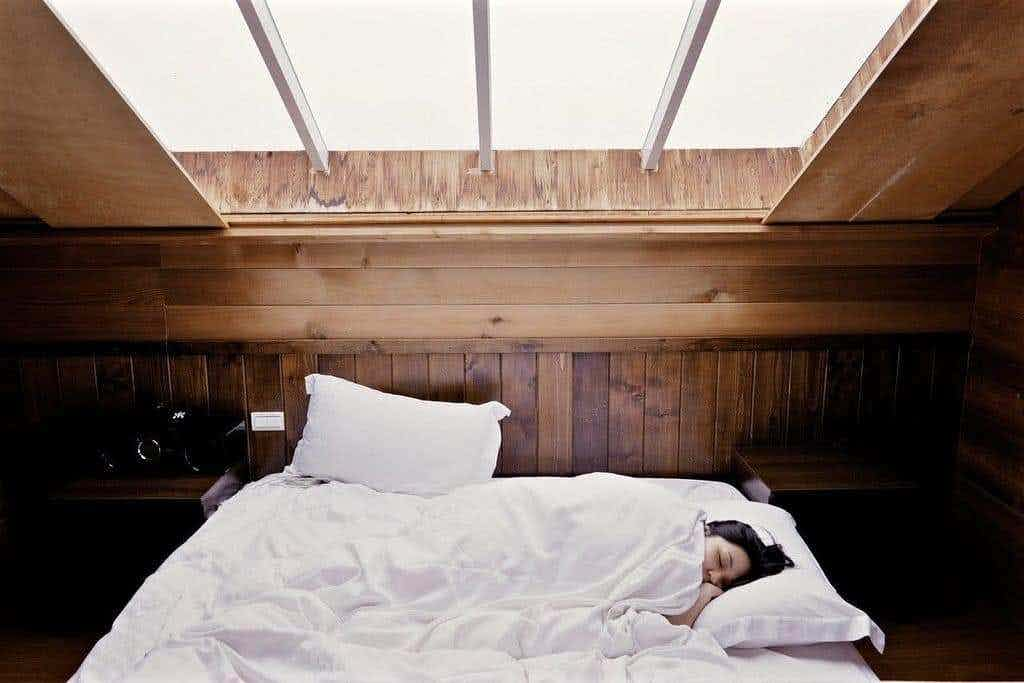Most of us spend almost 1/3rd of our lives asleep, and we spend even longer just lying around in bed, up to half our lives by some estimates!
Sleeping properly is crucially important to our health, but research at the Center for Disease Control and Prevention shows that at least 1 in 3 of us aren’t getting enough sleep. Chronic lack of sleep increases the risk of many health problems such as Alzheimer’s disease, cancer, atherosclerosis, cardiovascular disease and poor mental health to name but a few.
Learning to get a better night’s sleep is one of the best things you can do for your general health and longevity.
Do You Need Less Sleep As You Get Older?
The widespread consensus used to be that our sleep needs significantly reduce with age and that older adults can get away with much less sleep than younger adults.
In 2015, an 18-person strong multi-disciplinary panel representing leading experts in the field of sleep launched a major review to establish benchmarks for sleep needs at different ages.
Their findings suggested that sleep needs are very consistent throughout middle age and older age. Young adults and adults typically need between 7 and 9 hours of sleep, whereas older adults need between 7 and 8 hours sleep. They also concluded that even a slight deviation from the normal range could increase the risk of some health problems dramatically.
It is somewhat of a myth that older people need less sleep - dropping below the 7-hour minimum poses a risk for all adults, regardless of age, gender, or other factors.
The Problems Older Adults Face When Sleeping
Whether you’re an early morning lark or a night owl, our sleeping patterns should ideally remain consistent throughout life. Most older adults likely have a well-established routine for when they go to sleep and wake up, which is excellent.
However, as we age, we do encounter new problems that might make a good night’s sleep more challenging. Some of these problems may be expected, such as increased nighttime urination (nocturia), which is very common, affecting between 50% to 80% of over-60s.
Even so, if you do need to go to the toilet several times throughout the night, then you should seek medical advice - a simple test can rule out diabetes or other more severe health conditions.
Sleep apnea is another potentially serious problem that occurs more frequently with age. This may be associated with excessive snoring, headaches when waking up and extreme tiredness.
Again, it is wise to seek medical assistance if you suspect that your poor sleep could stem from this.
Most other sleep problems can be solved with lifestyle changes. Here are some common sleep problems and tips on how to tackle them.
1. Problem: Decreased Daylight
As we age, our melatonin and cortisol hormone levels decrease slightly. We may also spend more time inside away from sunlight, decreasing natural Vitamin D levels, all of which can worsen sleep quality.
Solution: Spend More Time Outside
Plenty of natural daylight yields many physical and mental health benefits that positively impact sleep. Whilst getting ample daylight may rarely be an issue in summer, it becomes far more critical in the darker winter months.
Vitamin D from sunlight plays a vital role in the synthesis of melatonin, boosting our sleep quality. In winter, you can consider a Vitamin D supplement (consult your doctor first) or a SAD lamp.
2. Problem: Decreased Exercise
Exercise needs drop with age, but moderate exercise remains very important for general health. Again, this can become a more pressing issue in the colder months when we are less motivated to go outside.
Solution: Exercise Moderately Every Day
Light exercise is essential for general health, and the benefits extend to sleep. According to John Hopkins Health, just 20 to 30 minutes of light to moderate exercise can contribute to better sleep, and it doesn’t take long to see the benefits.
It’s best to perform this exercise in the morning or daytime, as exercising too late may worsen sleep quality.
3. Problem: Eating Too Late Or Excessive Caffeine Consumption
As we age, the body’s digestive systems can slow down. We may also become more sensitive to caffeine, alcohol, tobacco and other substances that can keep us awake. Research undertaken at the National Center on Sleep Disorders Research in America suggested that eating too late at night can also disrupt sleep.
Solution: Adjust Your Eating Patterns
It may be wise to eat slightly earlier when we get older to give our digestive systems more time to digest food properly before bed. Research also advises that you should avoid caffeine for up to 7 hours before bed.
Some medications may also keep you up at night. Always take medicines at the times advised, and not earlier or later. Consult your doctor if you are unsure of when you should be taking any medication.
4. Problem: Stress And Anxiety
Stress and anxiety are the two biggest psychological causes of poor sleep. We can experience stress and anxiety at any point in our lives, but Harvard research suggests that stress management can become harder with age.
Solution: Work On Your Stress Management
Managing stress before bed is most important for getting a good night’s sleep. Avoid taxing tasks that require a lot of brainpower late at night and instead focus on rest and relaxation. A bedtime ritual is an excellent way to wind down before bed - listening to music especially has been linked to higher quality sleep.
Bonus tip: Check the temperature!
We spoke to Ethan Green from No Sleepless Nights. He told Health Times: "I think doing a temperature check of your bedroom when you go to bed is a great idea, and even when you get into bed.
"Do you feel comfortable, or are you a bit too hot or cold? If it is, then don't just lie there trying to fall asleep anyway. Have a think about how you can make yourself more comfortable by adjusting your bedding, a window, the heating, your bedclothes, and then do it. It's easy to get stuck in a pattern of having the bedroom set up the same way every night.
"But I think it's good to get into the habit of making sure it feels right every night rather than just dealing with however you feel because you're already in bed. It might only take a minute to open the window a bit to let some fresh air in, or add an extra blanket. And that will be a minute well spent if it means you sleep better for it."
What Is The Best Thing To Help You Sleep?
All of these things combined!
There is no magic bullet when it comes to getting better sleep. Usually, you won’t need to make too many lifestyle changes to enhance your sleep, and you might notice the changes very quickly indeed.
Once you find your sleep improving, make sure to keep positive habits intact. With a little time, dedication and willpower, you’ll be well on your way to securing better sleep health for life.









